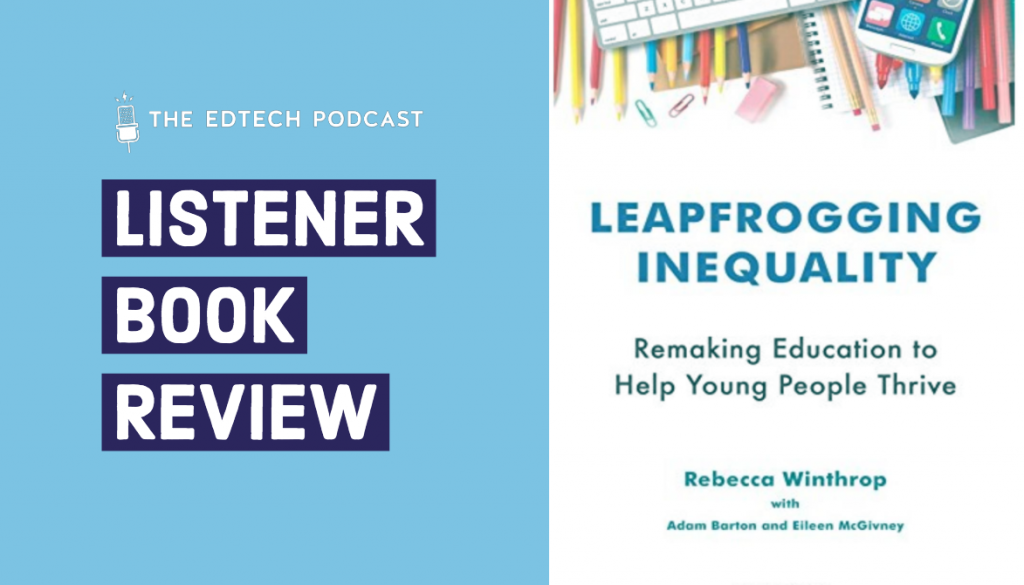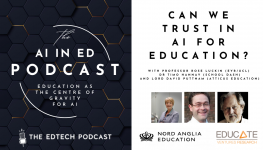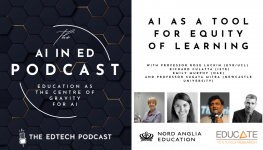Listener Book Review: Leapfrogging Inequality by Rebecca Winthrop et al.

Kristen Weatherby, Educational Consultant
This short book by Rebecca Winthrop and colleagues from the Brookings Institute in the US provides an interesting take on the topic of inequality in education around the world. It provides a framework for educational “leapfrogging”, defined literally as “the ability to jump ahead and make rapid or nonlinear progress”, which she argues is necessary to bridge what other Brookings Institute publications have identified as a “100-year gap” in education quality. This gap between the haves and have-nots in education is not new; it exists within and between countries, in high and low-income countries alike. The idea that it will take 100 years for students at one side of this gap to breach the chasm to the other side is a shocking figure. If this is true (and I haven’t read the other publications explaining how this figure was obtained), then policies and practices that advance students beyond just small increments are definitely needed. They’re needed anyway, in fact.
I found this book, and the framework or “leapfrog pathway” thought-provoking. The pathway was developed by examining at least 3000 educational interventions that have been reviewed or studied by other influential global organisations (such as the OECD or HundrED in Finland), referred to as “Educational Innovation Spotters”. It considers the reported impact of these interventions, even if there is no publicly available evidence that these interventions have worked. (See Figure 6.1 in the book.) The framework then provides guidance as to the types of educational interventions, pedagogies or practices that provide a “hop”, a “skip” or a “leap” for learners. (It doesn’t quantify hops, skips or leaps, but it is clear that the leap is what we should be aiming for.)
Even though I wish there were more evidence supporting some of the noted interventions, I applaud the thinking of Ms. Winthrop and her colleagues and found that this book provided a fresh new way to think about the issue of educational inequity.
Samantha Ahern (FHEA, ACMALT), Digital Education Innovation and Development Officer, Digital Education, Information Services Division, University College London
I really enjoyed Leapfrogging Inequality: Remaking Education to Help Young People Thrive. Winthrop et al open with a discussion of educational inequality, within and between nations, and the impending skills gap. Simply knowing and being able to perform at set assessments will be insufficient if they are to succeed and thrive in the 21st century. They will need to learn-to-learn, think creatively and develop inter and intra-personal skills. It is the development of these skills that will enable a reduction in inequality, as a hop, skip or leap.
The leapfrog pathway for education that the authors have developed has 4 elements, 2 Core: Teaching & Learning and Recognition of Learning, and 2 Support: People & Places and Technology & Data. A key theme from the text is the importance of the people involved and their approach to teaching and learning. Where an education innovation had a leap in People & Place and Teaching & Learning, there improvements in the development of students ability to learn-to-learn, think creatively and inter and intra-personal skills and their attainment in standardised tests.
As part of the development of the framework the others reviewed a number of education innovations that had the potential to hop, skip or leapfrog educational inequality. It was also that education innovations aren’t currently reaching all those that could benefit the most, displaced students due to humanitarian crises and those with disabilities.
Technology was also found to predominantly replace or marginally enhance existing practices, and few innovations in this space were targeted at those with disabilities who the authors thought it could help greatly.
The authors’ vision for education in the 21st century is one that I agree with, and one that I hope I am helping to make a reality.
About the authors
Rebecca Winthrop is a senior fellow and director of the Center for Universal Education at the Brookings Institution. Her research focuses on improving education globally, with special attention to innovative education models, the skills children need to succeed in life, and quality learning for the most marginalized children and youth, including girls and children affected by extreme violence.
Adam Barton is a research assistant at the Center for Universal Education at the Brookings Institution.
Eileen McGivney was a research associate at the Center for Universal Education at the Brookings Institution.



